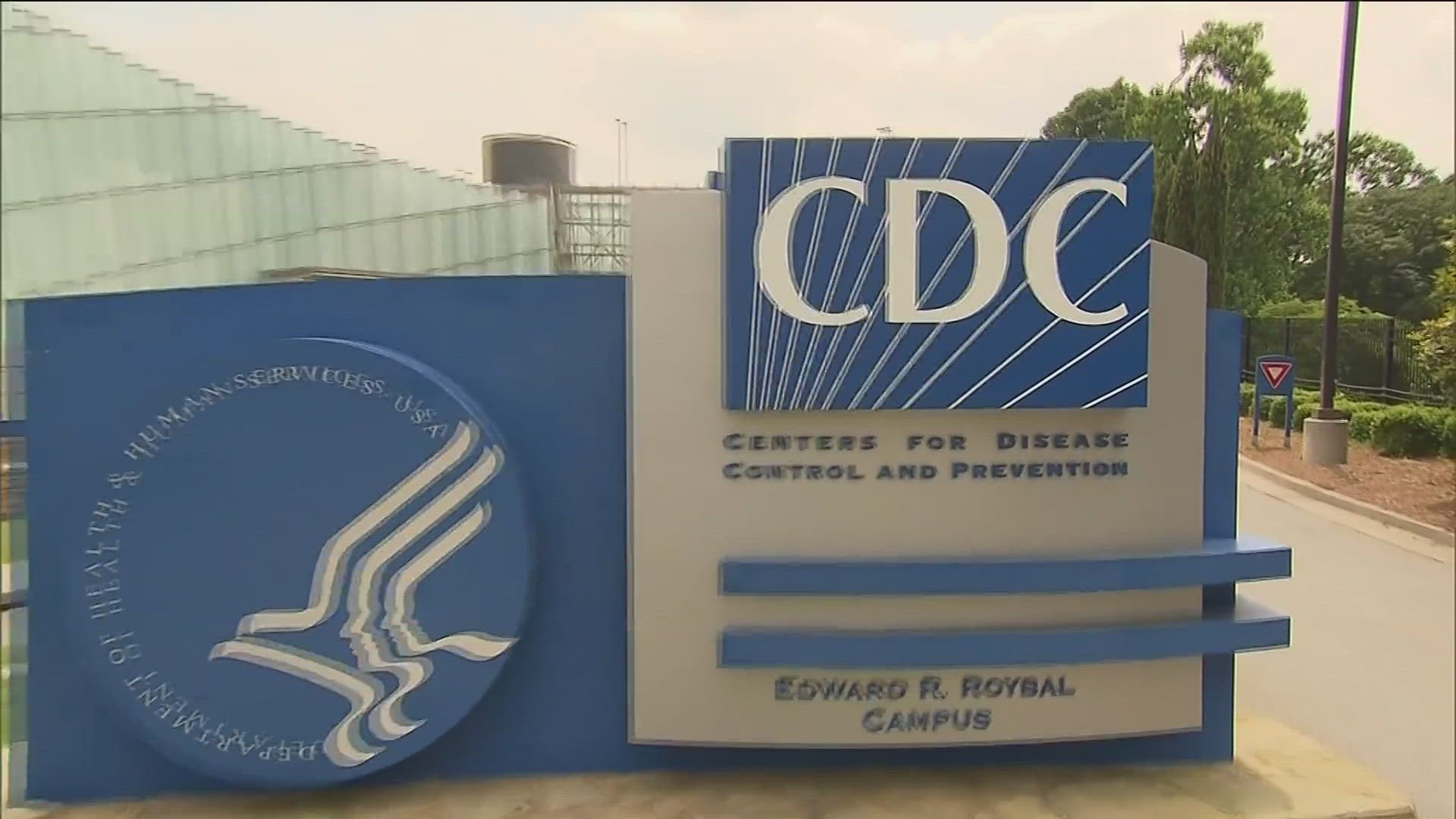ATLANTA — The Centers for Disease Control and Prevention issued an alert for doctors in the U.S.– warning them of a new virus outbreak. The agency is asking physicians to be on the lookout for cases of Marburg virus– a rare but deadly infection.
This virus is in the same family as Ebola. Both diseases are viral and deadly. It can cause internal bleeding and damage to your organs, according to the CDC.
The CDC's new health advisory, sent to clinicians and public health departments, came in response to recent Marburg outbreaks in Equatorial Guinea and Tanzania. Neither country had reported cases prior to this year.
Although the risk of Marburg virus disease in the U.S. is low, the CDC is asking doctors to “be aware of the potential for imported cases.”
Executive Director of Health and Community Education for Piedmont Healthcare, Dr. Jayne Morgan, said it is important to know the symptoms associated with the virus.
"Fever, headache, fatigue, diarrhea, bleeding, unexplained bleeding, all of those types of things," she explained. "It is contagious. If you come in contact with someone who is symptomatic, and you come in contact with those bodily fluids, remember saliva as well as the bodily fluid. Additionally, even a person who has died from this virus recently can still be contagious, you have to be very careful and not come in contact and physically touch or come in contact with that body."
While there have yet to be cases reported in the U.S., the CDC said it is important for doctors to see the warning signs of this infection, and for travelers to be aware, too.
“If you are in contact, you really should isolate until it is confirmed that you have a negative test 72 hours after you develop symptoms, especially if you develop symptoms," Dr. Morgan added. "So you just want to have a high index of suspicion if you are traveling to these areas, and certainly if you are coming home back to the United States."
For perspective, Equatorial Guinea has seen 14 cases from February through April 5, and 10 of those have been deadly.
"It can be actually rapidly fatal," she added. "Physicians and hospitals need to have a high index of suspicion if people began to present with these symptoms."
Dr. Morgan mentions there is a test that can show if you have Marburg or not. She adds that some people have been able to recover after contracting the virus.
"I want to make that distinction from COVID, which is an airborne virus,"
she said. "This is not airborne, it is transmitted by direct contact. You have to have an area of broken skin or mucous membranes for this to be absorbed."

